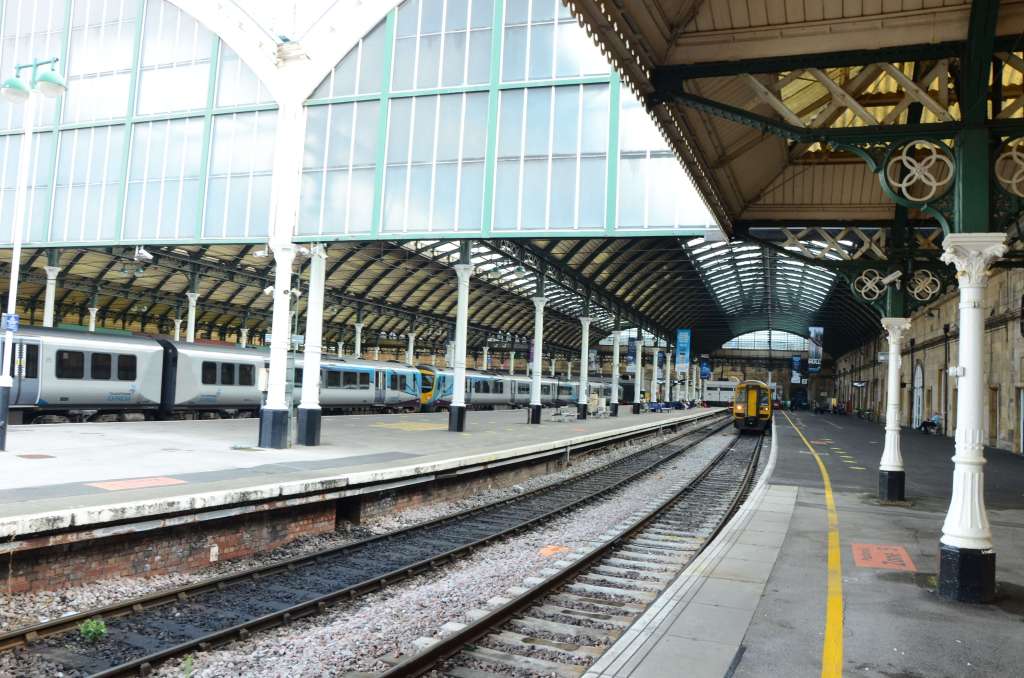Several train strikes have taken place across the UK in recent months over wage disputes between rail staff and Network Rail.
Read on to find out details about when the next strikes could take place, why they’re happening, and how they’re affecting small businesses.
This article was updated on 31 August 2023.
When are the next set of strikes?
The Associated Society of Locomotive Engineers and Firemen (Aslef) are striking on Friday 1 September.
And the Rail, Maritime and Transport Workers (RMT) union is striking on Saturday 2 September.
What is the Network Rail strike?
A long-running dispute between several railway worker unions and Network Rail has resulted in strike action. There’s also been a separate dispute between the unions and the Rail Delivery Group (RDG), which represents train companies.
The disputes are over pay, working conditions, and job security for railway workers.
The unions are asking for workers’ pay to reflect a higher cost of living caused by rising inflation.
However, Network Rail says it can only offer higher pay after reforms to modernise the railway system have been agreed.
To date, Network Rail and the Rail Delivery Group have made several pay rise offers to workers which have all been rejected by the unions.
The industrial action is the largest in the UK since 1989 and has been led by:
- The National Union of Rail, Maritime and Transport Workers (RMT)
- The Associated Society of Locomotive Engineers and Firemen (Aslef)
- The Transport Salaried Staffs Association (TSSA)
Is a deal any closer?
Strikes have continued throughout this year after RMT members voted to extend the strike mandate for six months in May.
RMT members did accept a revised offer from Network Rail in March, which ended a separate dispute.
Meanwhile, Aslef has rejected several offers, including a backdated pay rise of four per cent for last year and a four per cent increase for 2023.
“The government has met the rail unions, listened to them and facilitated improved offers on pay and reform,” said a Department for Transport spokesperson.
“The union leaders should put these fair and reasonable offers to their members so this dispute can be resolved.”
However, Aslef general secretary Mick Whelan has accused the train companies of failing to make “fair” and “sensible” pay offers.
National rail strikes – why are they happening?
The railway staff unions have an ongoing dispute with Network Rail and the government over:
- salaries for train drivers
- pay rises that reflect the cost of living
- proposed staff cuts
- unagreed changes to terms and conditions
- proposed modernisation of the railway system
- compulsory redundancies
RMT leader Mick Lynch has called for rail workers to be given “job security” and better “conditions at work”, alongside higher wages.
What does a rail strike mean for my business?
The rail strikes have caused disruption and inconvenience for businesses across all sectors.
A Simply Business survey of over 600 small businesses found that more than one in 10 had been affected by the rail strikes.
Of those, almost 40 per cent said they’d made it harder to plan in advance, while over a fifth said they’ve had fewer customers on days when strikes took place.
According to data from the Department for Transport, these were the main reasons for rail journeys in England in 2020:
- commuting (37 per cent)
- leisure (28 per cent)
- shopping (16 per cent)
- education (10 per cent)
- business (4 per cent)
- personal (4 per cent)
Businesses have been affected by staff not being able to get to their workplace because of the strikes.
For companies that have adopted a hybrid approach to working, the impact will be felt less.
However, the effect of the strike for retail and hospitality businesses could have been more serious if staff were unable to get into work.
These types of businesses, and those in the leisure sector, may also have suffered from a reduced number of customers on these days if people couldn’t travel. Read our guide for some top tips on how to increase footfall in a retail store or local shop.
Do trains still run on days when there’s a rail strike?
During previous strikes, some train companies operated a limited service. According to the BBC, around 20 per cent of services operated on these days although some parts of the country had no trains at all.
For most strikes, a special timetable is put in place. The services that do run on these days tend to be much busier than usual.
Train strikes – how to get a refund
If you buy a ticket in advance and your train is delayed, rescheduled, or cancelled due to a train strike, you can claim a refund.
You can also claim a refund if you have a season ticket and choose not to travel because of a strike.
How have the rail strikes affected your business? Let us know in the comments below.
More guides and news for small business owners
- What does the high inflation rate mean for small businesses?
- How to write a business plan (and business plan template download)
- Is business insurance a legal requirement?
Ready to set up your cover?
As one of the UK’s biggest business insurance providers, we specialise in public liability insurance and protect more trades than anybody else. Why not take a look now and build a quick, tailored quote?
burnstuff2003
